|
|
|
|
It’s been a year since the Cuban president, Miguel Díaz-Canel, began pushing for his country to develop its own COVID-19 vaccine. Now, Cuba has five of its own vaccine candidates, two in phase 3 clinical trials. In the latest episode of The Conversation Weekly podcast, we find out how this small country, living under a restrictive US trade embargo, could be on the cusp of vaccine sovereignty and what this means for global vaccine
diplomacy. Listen here or wherever you get your podcasts.
Meanwhile, more and more African countries have started to receive shipments of the long-awaited COVID-19 vaccines. Some have already used up their limited supply, while others are still waiting. But some have them, and don’t want them. This is a key challenge that vaccination drives face: vaccine reluctance. Heidi Larson and Raji Tajudeen reveal how, when vaccines were initially deployed, there was generally a positive perception of
their importance and efficacy. Since then, there’s been more reluctance and apprehension as more information, often poor or inaccurate, becomes available. What makes things more complicated is that information has been coming in dribs and drabs, creating a fertile ground for
rumour-mongering.
|
Gemma Ware
Editor and Co-Host, The Conversation Weekly Podcast
|

|
|
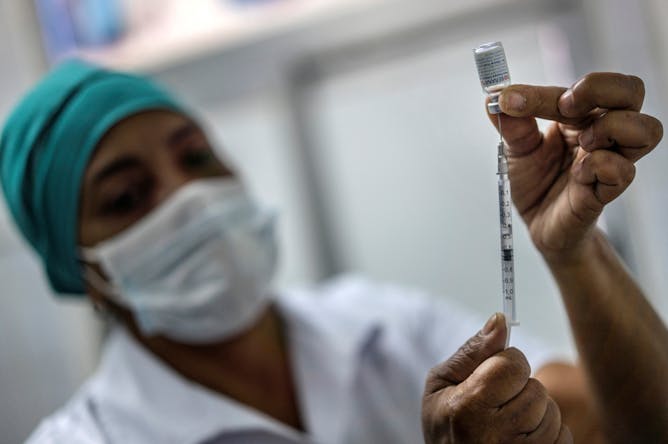
Cuba’s Soberana 02 coronavirus vaccine is one of two in phase 3 clinical trials.
Ramon Espinosa/EPA
Gemma Ware, The Conversation; Daniel Merino, The Conversation
Plus, a psychologist on how we look back at our big decisions in life. Listen to episode 14 of The Conversation Weekly podcast.
|
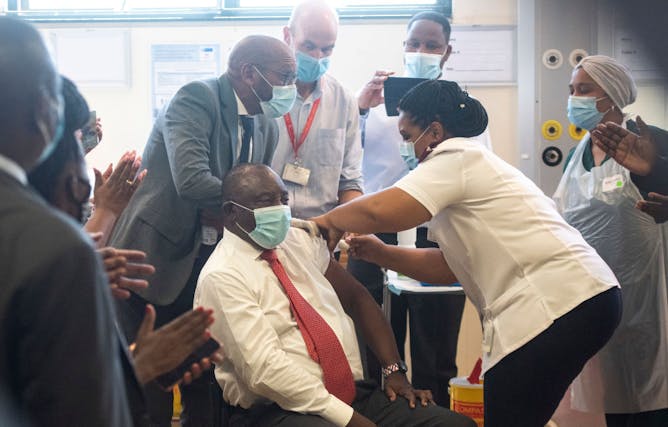
South Africa’s president, Cyril Ramaphosa, receives the COVID-19 vaccine. Leaders have publicly taken the vaccine to encourage others to do the same.
Photo by Brenton Geach/Gallo Images via Getty Images
Heidi Larson, London School of Hygiene & Tropical Medicine; Raji Tajudeen
Recent uncertainty over blood clots and vaccine expiration dates have taken a toll on public confidence.
|
Science + Environment
|
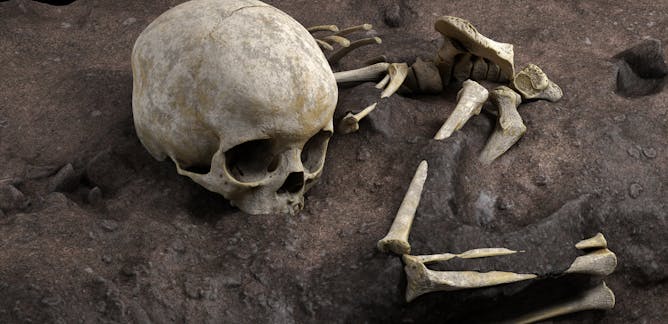
Simon Armitage, Royal Holloway
Burials seem to have been uncommon in Africa some 80,000 years ago, although they were widespread in Eurasia.
| |
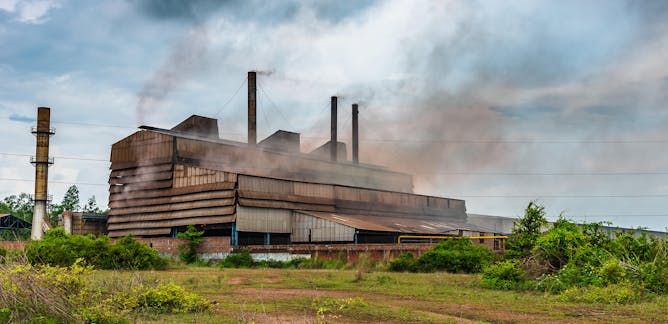
Navroz K. Dubash, University of Exeter; Harald Winkler, University of Cape Town; Lavanya Rajamani, University of Oxford
Countries cannot be expected to all tread the same path to net zero emissions.
|
|
|
Health + Medicine
|
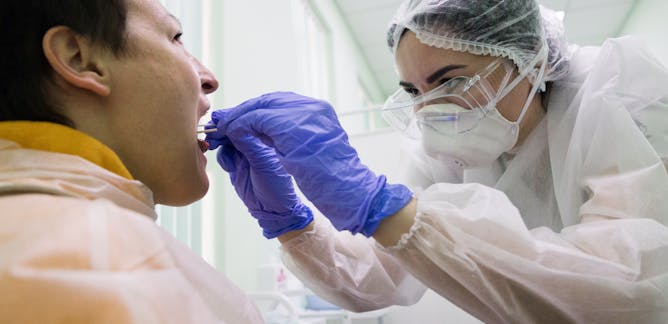
Bart C. Weimer, University of California, Davis; Darwin Bandoy, University of California, Davis
By merging genomics with classical epidemiology, researchers are able to predict new disease outbreaks based on which viral variants are on the rise.
| |
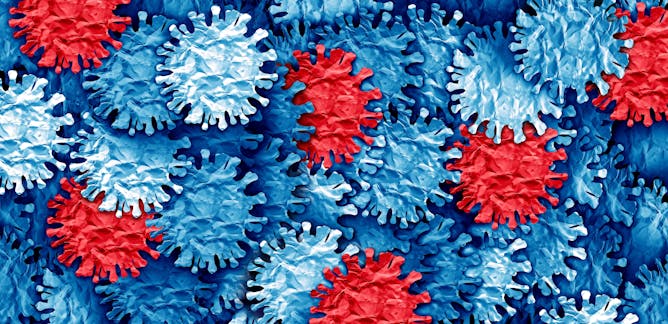
Ed Feil, University of Bath
Coronavirus is 30,000 RNA 'letters' long, meaning there are over a quintillion possible genome permutations.
|
|
|
Business + Economy
|
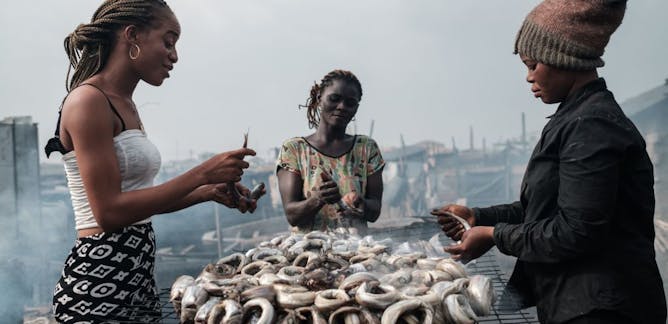
Ifesinachi Okafor-Yarwood, University of St Andrews; Sayra van den Berg Bhagwandas, University of St Andrews
The contributions that women in West Africa's fisheries make to the sector are widely un(der)paid, undervalued and largely invisible.
| |

Siri Terjesen, Florida Atlantic University
The social media giant's third-party review panel upheld Facebook's ban on Donald Trump. A corporate governance expert explains why Facebook created the Oversight Board.
|
|
|
Politics + Society
|
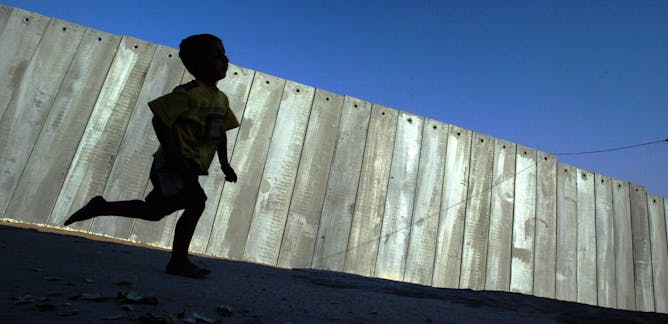
Leonie Fleischmann, City, University of London
Human Rights Watch says Israeli action amounts apartheid in certain areas. But what does that really mean?
| |
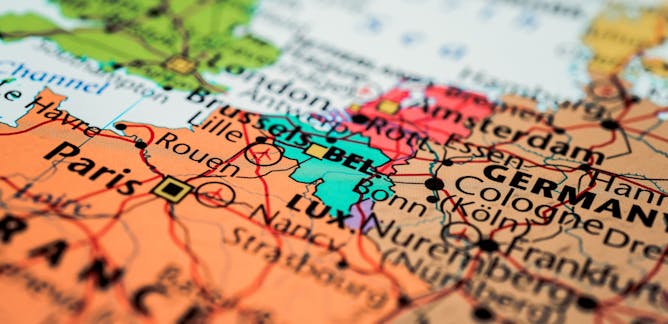
Imogen Wegman, University of Tasmania
Boundaries aren't just treaties. They've been built from rivers, oral history and newspaper notices — and rocks in the way of farmers.
|
|
|
En Français
|
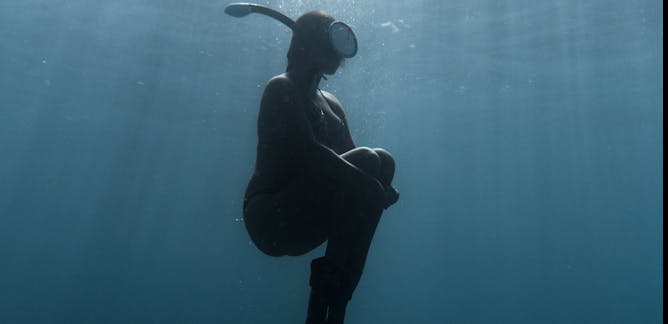
Damien Vitiello, Université de Paris
La plongée en apnée a des effets importants sur notre organisme. Les chercheurs explorent s’ils pourraient être mis à profit pour soigner certaines affections.
| |
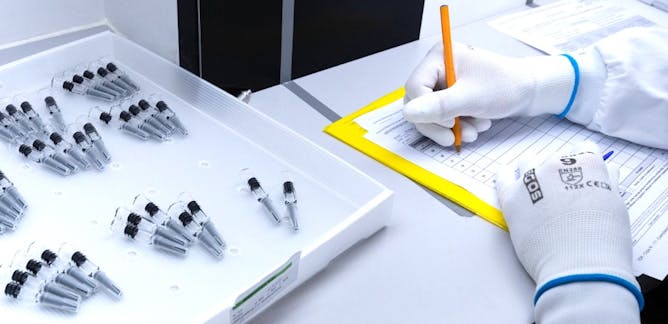
Vincent Giolito, EM Lyon
La stratégie des grands laboratoires pharmaceutiques consistant à déléguer la recherche aux biotechs depuis le début des années 2000 explique notamment leur retard actuel.
|
|
|
| |
| |
| |
| |
| |
| |
|
|
|
|
|
|
|